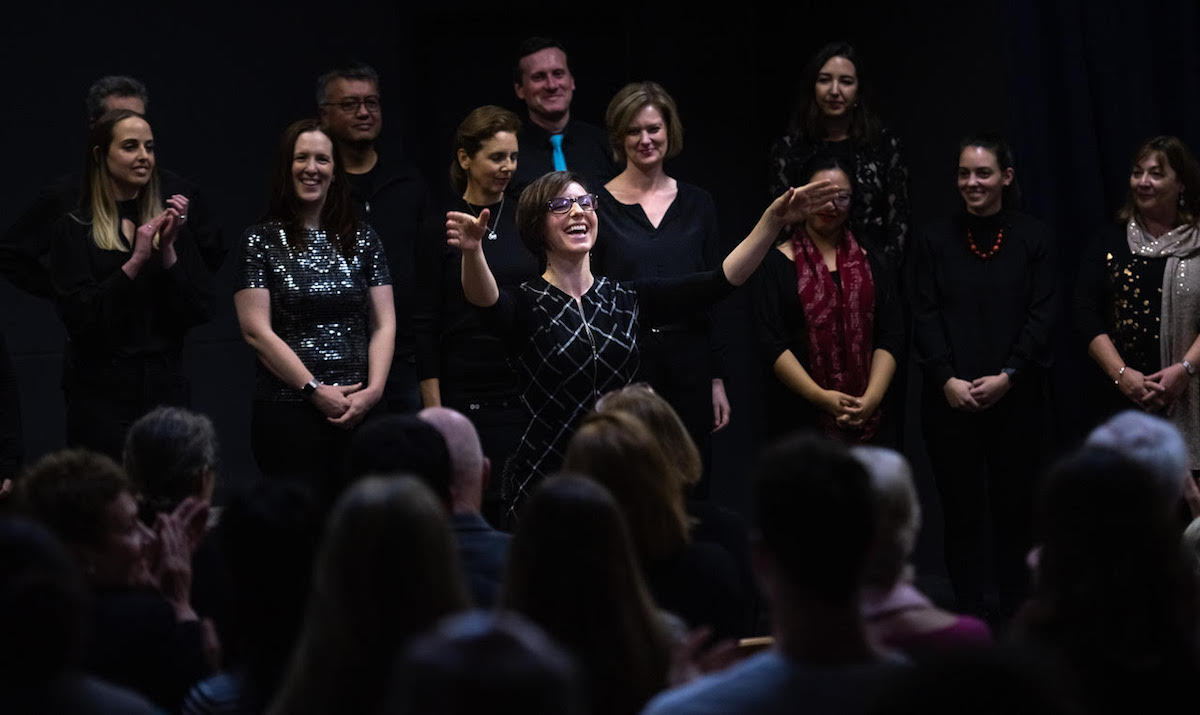I hoist myself up on the conductor’s stool and place my music on the heavy black stand. Twenty-four classically trained choristers gaze at me expectantly.
A minute ago, I had been sitting among them, safe in relative anonymity. A rank-and-file alto taking the wheel considerably alters a group dynamic.

Naomi Crellin. Photo supplied
Imposter syndrome prods me as I lead the choir through a first read of the Michel Legrand classic Windmills of Your Mind.
While the melody may be familiar, my arrangement is peppered with syncopation, difficult to sightread. I observe furrowed brows, tense body language and furious concentration. I wonder if I’ve included too much rhythmic complexity as each section slides out of sync with the next, heading to chaos.
I begin clapping on the downbeat to provide context, but this only augments the confusion. We stop and I take a deep breath. It occurs to me that I’m not the only one outside of my comfort zone.
I acknowledge how difficult the arrangement is and urge the choir to not feel despondent. The rhythmic pulse will come with time and familiarity. I hesitantly ask...










Comments
Log in to join the conversation.